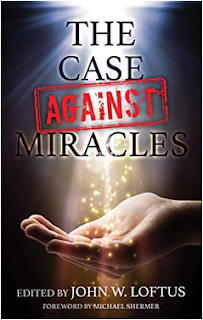The church has done such a good job idealizing and promoting Jesus that its rank and file members aren’t even aware of strikes one and two. They don’t study and probe. They rarely ask: where did our beliefs come from?
Strike One:
The church has done such a good job idealizing and promoting Jesus that its rank and file members aren’t even aware of strikes one and two. They don’t study and probe. They rarely ask: where did our beliefs come from?
Strike One:
Where did the gospels come from? Since these documents overflow with details about Jesus—his coming and goings, sayings, impressive miracles—it has been commonly assumed by the laity that they were written by people who knew Jesus. It has been easier to think this because they are “according to” Matthew, Mark, Luke and John: these names add a personal touch. But when historians—including pious believers—began applying to the gospels the same standards they apply to other documents from the ancient world, the common assumptions about gospel origins didn’t hold up. In fact, it has been a struggle—and oh how Christian scholars have tried—to find a way to demonstrate that the gospels qualify as history.
In the documents themselves no authors claim credit, e.g., “written by Mark,” nor are any of them signed and dated. We don’t have any idea either where they were written, that is, where the authors lived. There has been an awful lot of guesswork and speculation, but it remains just that.
We mark the anniversary of the January 6 insurrection by hearing FFRF attorney Andrew Seidel describe the Christian Nationalism of the rioters. Representative Don Beyer (VA) explains why he is a member of the Congressional Freethought Caucus and we hear Representative Jamie Raskin (MD) stressing the need to talk about fascism. Then we talk with former evangelical minister and Christian apologist, John W. Loftus, about his new anthology God and Horrendous Suffering. LINK.It's a good one!
Let me share with you here a few of my fantasies about resolutions for 2022 that Christians could and should make. These have to do with religious practice itself, i.e., holding themselves accountable to some of the standards they themselves—we would have to assume—consider appropriate. These resolutions have to do with becoming better Christians.
I have four in mind.
Tis the day before Christmas, so what better time to take a close look at the nativity stories? If only we could get faithful church-goers to do the same. They could see that the church has been getting away with far too much. A couple of months ago I visited a church in a town near Milan. I found all the usual imagery, including, near the entrance—off to the side in the shadows—the traditional Nativity Scene, which included the Three Wise Men kneeling before the baby Jesus asleep in the manger.
No: this is not what we find in the gospels. I wonder: if you ask Christians coming out of church: “Where do we find the stories of the birth of Jesus?” …how many could tell you? Actually, the birth event itself is mentioned only once, in Luke 2. In Matthew 2, we find a description of what happened some time later. Let’s take a close look at both.


Throughout history, arguments for and against the existence of God have been largely confined to philosophy and theology. In the meantime, science has sat on the sidelines and quietly watched this game of words march up and down the field. . . . In my 2003 book, Has Science Found God? I critically examined the claims of scientific evidence for God and found them inadequate. In this present book, I will go much farther and argue that by this moment in time science has advanced sufficiently to be able to make a definitive statement on the existence or nonexistence of a God having the attributes that are traditionally associated with the Judeo-Christian-Islamic God. --From the Preface to God: The Failed Hypothesis.After disagreeing with my chosen title for Christianity is not Great, highlighted earlier on day six of the twelve days of Solstice, Prometheus Books accepted my book proposal on the condition they would have the final say in naming it. They basically didn't want it named after Stenger's NY Times Bestselling book, such as Christianity: The Failed Hypothesis. After eliminating a few titles it came down to two:
The ongoing damage caused by religion
Here’s a rant against Jews that should horrify all Christians:
“… set fire to their synagogues or schools…bury and cover with dirt whatever will not burn, so that no man will ever again see a stone or cinder of them…I advise that their houses also be razed and destroyed. For they pursue in them the same aims as in their synagogues… I advise that all their prayer books and Talmudic writings, in which such idolatry, lies, cursing and blasphemy are taught, be taken from them…I advise that their rabbis be forbidden to teach henceforth on pain of loss of life and limb…I advise that safe-conduct on the highways be abolished completely for the Jews. For they have no business in the countryside, since they are not lords, officials, tradesmen, or the like…I advise that usury be prohibited to them, and that all cash and treasure of silver and gold be taken from them and put aside for safekeeping…I commend putting a flail, an ax, a hoe, a spade, a distaff, or a spindle into the hands of young, strong Jews and Jewesses and letting them earn their bread in the sweat of their brow…”
Here are some blurbs for my anthology The End of Christianity.
The
Christian Delusion is the first book I give to anyone who wants to understand
why I am no longer a Christian. Loftus and company have returned with The End
of Christianity, which will now be the second book I give to anyone who wants
to read a substantive case against Christian faith.” —Luke Meuhlhauser, owner
of the popular blog Common Sense Atheism, which named Loftus’s book Why I Became an
Atheist as the Best Atheism Book of the Decade (2000-2009).
The evidential problem of horrendous suffering is one of the most powerful refutations of the theistic god as can be found: If there’s a theistic omni-everything god, who is omnibenelovent (or perfectly good), omniscient (or all-knowing), and omnipotent (or all-powerful), the issue of why there is horrendous suffering in the world requires an explanation. The reason is that a perfectly good god would want to eliminate it, an all-knowing god would know how to eliminate it, and an all-powerful god would be able to eliminate it. So the extent of horrendous suffering means that either god does not care enough to eliminate it, or god is not smart enough to to eliminate it, or god is not powerful enough to eliminate it. The stubborn fact of horrendous suffering means something is wrong with god’s goodness, his knowledge, or his ability.
Not quite the greatest story ever told
There are topics that aren’t mentioned from the pulpit or in Sunday School. One example: how can—how should—faith claims be tested? How is valid knowledge acquired? Epistemology is not a word commonly used by the laity, but the concept is crucial. “Take it on faith”—take our word for it, is stressed by clergy, based on centuries of tradition. But that is avoidance of epistemology, i.e., arriving at sound methodology to find out what is actually true. Folks are trained not to be curious or skeptical.
 |
| The Tree of Knowledge |
In 2008, John W. Loftus launched what would become a definitive series of anti-apologetic works. The Case against Miracles is the capstone volume of this astonishing output, and it's an impressive achievement. Any thoughtful Christian whose conviction rests on the evidence of miracles who reads this book with an open mind will be hard pressed not to abandon--or at least profoundly rethink--his or her beliefs. Of course, true believers seldom approach works critical of their faiths with an open mind, which is why The Case against Miracles will probably be of greater value to secular students of religion and especially to those drawn to the challenges of anti-apologetics. --Tom Flynn, Senior Editor of Free Inquiry magazine.
It’s no longer out-of-bounds to wonder if Jesus existed
In his book, Outgrowing Religion, John Compere wrote: “The myth of Paul Bunyan makes a good story, as does the story of Jesus. But neither tale withstands critical scrutiny or gives us a clue about the meaning of life. For that, we have brains.” It can be noted, by the way, that legions of New Testament scholars have applied plenty of brainpower to analysis of the four gospels—and they know very well that these stories do not withstand critical scrutiny. Of course, to defend the faith at all costs, evangelical scholars hold out against this conclusion. But Jesus studies have been in turmoil for decades because scholars have not succeeded in identifying which parts of the gospels actually qualify as history. No agreed-upon methodology for that has been discovered.
Dangerous thoughts of a young seminarian
Only a few items survive in the dusty archives! That is, the paper trail from my eleven years of graduate work is meagre. Boston University School of Theology was my academic home, 1964-1975. There is, of course, my 250-page doctoral dissertation (typed on my manual typewriter), but I saved few of my other papers. One that I cherish the most is a 17-page essay titled, The Secrecy Motif in Mark’s Gospel, which received an “A”—and a glowing comment from the professor: “This represents a lot of careful work and thought, and I have learned much from it. An excellent paper.” What a nice boost for 24-year old me!